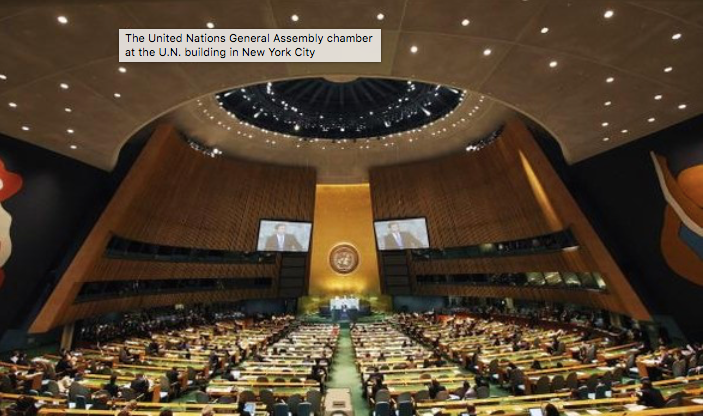I’m so bored of the broadband debate
General ·The papers and tech press are full of talk about broadband access. The price of broadband. The number of homes with or without access. Should every house have access? Should every house pay the same price?
I’m not really bored of broadband. It is really important, But it feels like the wrong debate. We shouldn’t be debating mobile or Wi-Fi either.
We should be talking about and demanding internet access everywhere. People, cars, drones and even cereal packets will all want to be connected to the internet. They probably won’t care how they connect.
 In the future you might be able to press a button on your cereal packet to tell your favourite online shopping store that you want some more. Other brands of cereal are and will continue to be available.
In the future you might be able to press a button on your cereal packet to tell your favourite online shopping store that you want some more. Other brands of cereal are and will continue to be available.
In the future we will need internet access in houses, in offices, on trains, on roads, in the countryside and up in the sky over the countryside where drones (and maybe…eventually…flying cars) are travelling.
. The future flying car will probably be automated and connected to the internet.](https://cdn-images-1.medium.com/max/800/1*9iKeWvbApnJtUHiq6UKtFQ.png) The flying car from The Jetsons. The future flying car will probably be automated and connected to the internet.
The flying car from The Jetsons. The future flying car will probably be automated and connected to the internet.
When we debate broadband and set targets for successful delivery we set in motion complex and expensive infrastructure projects that take years to complete.
Projects that are focussed on a particular type of technology rather than on the service that users actually need: internet access everywhere.
Building blocks for internet access
Internet access can be delivered by a whole host of different technologies: broadband (by fibre, by copper or by coaxial cable), mobile, satellite, Wi-Fi, balloons, white space, Li-Fi or something that’s invented next year. We will find that in some countries, regions, cities, towns or houses that different technologies will work better than others. That’s fine. Our regulators will make sure that they work together and don’t conflict. All of those technologies can provide internet access.
In some areas we will find that the best type of organisations to build and maintain internet access are large private companies operating at scale with mass-market solutions. In other areas we will find that the best solution is for the public sector to build and maintain internet access through municipal networks. In others it will be community initiatives like South Africa’s wireless networks. A good regulatory framework can allow all to flourish in the right environment.
.](https://cdn-images-1.medium.com/max/800/1*bsRvreE5SOkYLnAKzr-MGw.png) A trench being dug by the UK non-profit community benefit broadband provider B4RN.
A trench being dug by the UK non-profit community benefit broadband provider B4RN.
Picking the right technology, regulatory and organisational solution for a given area will let us deliver internet access faster.
It is simpler to get internet access into every home than it is to get a particular technology into every home
User-centred internet access
If we are to provide internet access everywhere we also need it to be centred on people and their needs. We should not be targetting houses, offices, or fields. We should be thinking about the needs of people. As with other types of infrastructure it is how and when we use the internet that value is created. We use the internet to create, deliver and consume services for people.
Some of the services may be indirect, for example the distribution of video content between television broadcasters or “smart” houses, but they only exist because they are meeting the needs of someone, somewhere.
.](https://cdn-images-1.medium.com/max/800/1*_oJXKnTHRWmWEvURMK8Avw.png) A submarine cable coming to shore. That cable meets a user need. Photo by Cable and Wireless Worldwide. Taken from ZDNet.
A submarine cable coming to shore. That cable meets a user need. Photo by Cable and Wireless Worldwide. Taken from ZDNet.
If we start with people and think of their needs and capabilities then we can come up with different ways of using these building blocks to provide internet access everywhere to every person, car, drone and cereal packet.
By understanding their capabilities we will also find that in some areas we can work with local government, businesses, communities and people to build the necessary local infrastructure. We shouldn’t wait for central government to set new targets. We should just crack on with it.
Digital exclusion
Starting with users will also help us understand that by focussing on broadband we have been focussing on technical infrastructure and have left some people behind. People who can’t afford internet access or lack the skills or any of a number of other reasons that mean they can’t use the internet. Leaving those people behind has impacted on the value we get from the internet and reduced the number of people who can help build local infrastructure.
We will need to couple action on digital exclusion with internet access to get the most value out of our investment in internet infrastructure.
Internet everywhere
It can be quite scary to think of internet everywhere rather than simply thinking of broadband access. Broadband access feels like a router in the corner of a living room. Internet everywhere feels very different.
What is the right regulatory framework for internet everywhere? What will it mean for privacy? Will there be state surveillance of everything? Will I ever escape the attention of push notifications carrying ‘urgent’ news? Can I go off-grid? We will become ever more reliant on the internet, what if it breaks? Who controls the internet?
But it is the future. The internet is not going anywhere. And we, and our internet-enabled cereal packets, will only demand access to it more and more. We need to understand these, and other, questions and ensure that we have answers that suit our societies. Our national politicians need to grapple with these questions and not just whether or not a particular town has enough internet.
 Politicians debating. (Photo by Mario Tama/Getty Images)
Politicians debating. (Photo by Mario Tama/Getty Images)
Don’t get me wrong: broadband is important, but it isn’t the end-goal.
We need to remember that we are heading to a future where there is internet everywhere. This will help us focus on the right questions and make better choices over the next few years. By making better choices we might get to this future faster and reap the benefits sooner.
A future with the internet everywhere is what will be demanded and needed. It really is that simple.
I’d suggest we stop talking so much about broadband access and the number of homes passed and start talking about getting the internet everywhere instead.
If we don’t then I’ll just keep singing this song in my head.
All together now: I’m so boooored with the broadband debate.